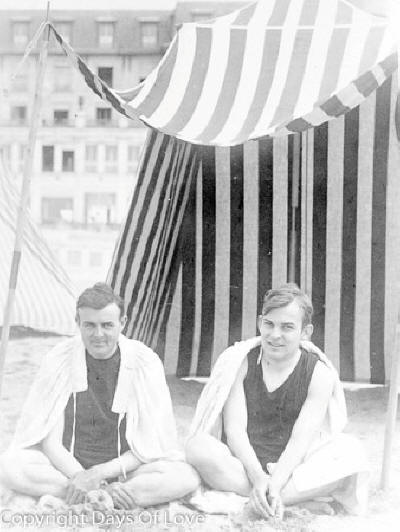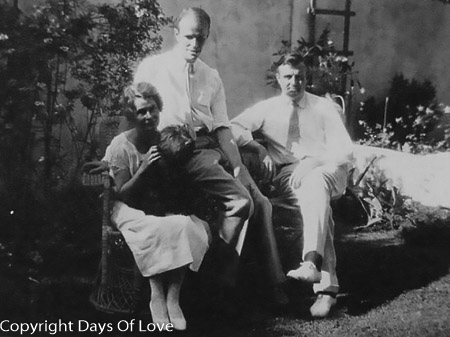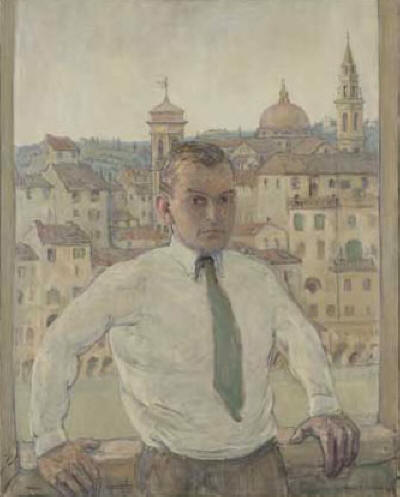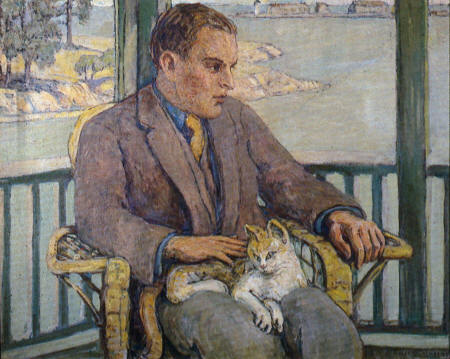

Partner Russell Cheney
Queer Places:
Hackley School, 293 Benedict Ave, Tarrytown, NY 10591
Polytechnic School, 1030 E California Blvd, Pasadena, CA 91106
University of Oxford, Oxford, Oxfordshire OX1 3PA
Yale University (Ivy League), 38 Hillhouse Ave, New Haven, CT 06520
87 Pinckney St, Boston, MA 02114
Cheney House, Old Ferry Ln, Kittery, ME 03904
Harvard University (Ivy League), 2 Kirkland St, Cambridge, MA 02138
Eliot House, 101 Dunster St, Cambridge, MA 02138
Hotel Manger, Boston, Massachusetts 02114
Springfield Cemetery, 171 Maple St, Springfield, MA 01105, USA
 Francis
Otto Matthiessen (February 19, 1902 – April 1, 1950) was an
educator, scholar and literary critic influential in the fields of American
literature and American studies.[1] His best known work, ''American Renaissance:
Art and Expression in the Age of Emerson and Whitman'', celebrated the
achievements of several 19th-century American authors and had a profound impact
on a generation of scholars. Matthiessen was well known for his support of
liberal causes and progressive politics. His contributions to the Harvard
University community have been memorialized in several ways, including a
recently endowed visiting professorship. F. O. Matthiessen, newly graduated from
Harvard and embarking on his career as a cultural historian, wrote to his lover,
the painter Russell Cheney, about
his reaction to reading the work of the sexologists in 1924. Having read
Edward Carpenter's The
Intermediate Sex in one day, he recalled the work of
Havelock Ellis. “Then for the first time it
was completely brought home to me that I was what I was by nature . . . . Was it
possible for love and friendship to be blended into one?” He discovered that it
was, since his relationship lasted until Cheney's death in 1945.
Francis
Otto Matthiessen (February 19, 1902 – April 1, 1950) was an
educator, scholar and literary critic influential in the fields of American
literature and American studies.[1] His best known work, ''American Renaissance:
Art and Expression in the Age of Emerson and Whitman'', celebrated the
achievements of several 19th-century American authors and had a profound impact
on a generation of scholars. Matthiessen was well known for his support of
liberal causes and progressive politics. His contributions to the Harvard
University community have been memorialized in several ways, including a
recently endowed visiting professorship. F. O. Matthiessen, newly graduated from
Harvard and embarking on his career as a cultural historian, wrote to his lover,
the painter Russell Cheney, about
his reaction to reading the work of the sexologists in 1924. Having read
Edward Carpenter's The
Intermediate Sex in one day, he recalled the work of
Havelock Ellis. “Then for the first time it
was completely brought home to me that I was what I was by nature . . . . Was it
possible for love and friendship to be blended into one?” He discovered that it
was, since his relationship lasted until Cheney's death in 1945.
Matthiessen was born in Pasadena, California, on February 19, 1902. He
was the fourth of four children born to Frederick William Matthiessen
(1868-1948) and Lucy Orne Pratt (1866). The family's three older siblings
included Frederick William (1894), George Dwight (1897) and Lucy Orne
(1898).[2]
In Pasadena Matthiessen was a student at
Polytechnic School. Following the separation of his parents, he relocated
with his mother to his paternal grandparents home in Lasalle,
Illinois. His grandfather, Frederick William Matthiessen, was an
industrial leader in zinc production and a successful manufacturer of clocks
and machine tools. He also served as mayor of Lasalle for ten
years.[3] The grandson completed his secondary education at Hackley
School, in Tarrytown, New York.


F.O. Matthiessen (Florence, Italy), 32.5×25.5″ 1926

F.O. Matthiessen with Pansy Littlefield, 24.5×30″ 1926
.jpg)
Yale University, New Haven, CT
In 1923 Matthiessen graduated from
Yale University, where he was managing editor of the Yale Daily News,
editor of the Yale Literary Magazine and a member of Skull and
Bones.[4] As the recipient of the university's Deforest Prize, Matthiessen
titled his oration, "Servants of the Devil", in which he proclaimed Yale's
administration to be an "autocracy, ruled by a Corporation out of touch with
college life and allied with big
business".[5] In
his final year as a Yale undergraduate, he received the Alpheus Henry Snow
Prize,[6] awarded to the senior "who through the
combination of intellectual achievement, character and personality, shall be
adjudged by the faculty to have done the most for Yale by inspiring in
classmates an admiration and love for the best traditions of high
scholarship".
Previous to meeting his beloved, Matthiessen had confessed to a close friend, Russell Davenport, he could only see three outcomes for him: “morbidity” (complete sexual repression), “self-abuse” (masturbation), or “the old business with men” (anonymous sex). But post-Cheney, there opened before Matthiessen the wonderful new perspective of “love between men.”
Matthiessen and Cheney met aboard an ocean liner on the way to England in 1924 and were lovers until Cheney's death in 1945. Mathiessen affectionally nicknamed Cheney "Rat", while Cheney called Mathiessen "Devil". The two exchanged over 3000 letters during their years together. Though the family was mystified by his relationship with Mathiessen, they were more disturbed that Cheney had left the mill town of Manchester, CT, for a career in the arts than that he was openly involved with another man. Though they never stopped loving their son, at his funeral the animosity towards Mathiessen came out and they treated the grieving man coldly. Both were very reticent during their first meeting. After days of intense personal conversation on the boat where they shared some of their innermost secrets as well as laughter and camaraderie, Mathiessen was still afraid to say he was gay. At one point he steered the conversation towards Havelock Ellis but again shrank from coming out to Cheney. Finally, at some point after 2 am on the 4th day of the voyage and back in Mathiessen's cabin with Cheney safely biting into a pear, Mathiessen awkwardly said, "I know it won't make any difference to our friendship, but there's one thing I've got to tell you: before my senior year at Yale I was sexually inverted. Of course I controlled it since." After a moment of silence that to Mathiessen was one of the most frightening of his life, Cheney confessed he too was gay. There followed two hours of even more intense conversation. Later, Cheney asked if a Bartlett pear was the antidote for the apple in the Garden of Eden.
In the earliest letters, they discussed the possibility of same-sex marriage. "Marriage! What a strange word to be applied to bed! Can't you hear the hell-hounds of society having full pursuit behind us? But that's just the point. We are beyond society." They did not pledge monogamy to each other, though they knew from the beginning that they would be life partners.
Matthiessen studied at Oxford University,
as a Rhodes Scholar earning a B.Litt. in 1925. At Harvard University, he
quickly completed his M.A. in 1926 and Ph.D. degree in 1927. Matthiessen then
returned to Yale to teach for two years, before beginning a distinguished
teaching career at Harvard.
Mathiessen suffered from depression. Feeling suicidal, he checked himself into McLean Hospital just after Christmas 1938. When he was released three weeks later, he and Cheney rented an apartment at 87 Pinckney St, Boston, to establish an in-town base. Mathiessen eventually bought the entire Pinckney St building.
Matthiessen was known to his friends as "Matty".[7] As a gay man in the 1930s and 1940s, he chose to remain in the closet throughout his professional career, if not in his personal life – although traces of homoerotic concern are apparent in his writings.[8] In 2009, a statement from Harvard University said that Matthiessen "stands out as an unusual example of a gay man who lived his sexuality as an 'open secret' in the mid-20th century."[9][10]
He had a two decade long romantic relationship with the painter Russell Cheney, twenty years his senior. Like Matthiessen's family, Cheney's was prominent in business, being among America's leading silk producers. In a 1925 letter to Cheney, Matthiessen wrote about trusting friends with the knowledge of their relationship, rather than the world at large;[11] in planning to spend his life with Cheney, Matthiessen went as far as asking his cohort in the Yale secret society Skull and Bones to approve of their partnership.[12] With Cheney having encouraged Matthiessen's interest in Walt Whitman, it has been argued that ''American Renaissance'' was "the ultimate expression of Matthiessen's love for Cheney and a secret celebration of the gay artist."[13][14] Throughout his teaching career at Harvard, Matthiessen maintained a residence in either Cambridge or Boston. However, the couple often retreated to their shared cottage in Kittery, Maine. Russell Cheney died in July 1945.
American Renaissance: Art and Expression in the Age of Emerson and Whitman (1941), in David Bergman’s words, “is Matthiessen’s ultimate expression of his love for Cheney and a covert celebration of the homosexual artist,” focusing on five authors: two essayists, Emerson and Thoreau; two novelists, Hawthorne and Melville; and a poet, Whitman.
Matthiessen committed suicide in 1950 by jumping off a 12th floor window of the Hotel Manger in Boston. He had been hospitalized once for a nervous breakdown in 1938–39. He also continued to be deeply affected by Russell Cheney's death. He spent the evening before his death at the home of his friend and colleague, Kenneth Murdock, Harvard's Higginson Professor of English Literature.
In a note left in the hotel room, Matthiessen wrote, "I am depressed over world conditions. I am a Christian and a Socialist. I am against any order which interferes with that objective."[15] Commentators have speculated on the impact of the escalating Red Scare on his state of mind. He was being targeted by anti-communist forces that would soon be exploited by Senator Joseph McCarthy, and inquiries by the House Un-American Activities Committee into his politics may have been a contributing factor in his suicide. In an article subsection titled "Dupes and Fellow Travelers Dress Up Communist Fronts" in the April 4, 1949 edition of ''Life Magazine'', Matthiessen is pictured among fifty prominent academics, scientists, clergy and writers, who also included Albert Einstein, Arthur Miller, Lillian Hellman, Langston Hughes, Norman Mailer and fellow Harvard professors, Kirtley Mather, Corliss Lamont and Ralph Barton Perry.[16] Writing in 1958, Eric Jacobsen referred to Matthiessen's death as "hastened by forces whose activities earned for themselves the sobriquet un-American which they sought so assiduously to fasten on others".[17] However, in 1978 Harry Levin was more skeptical, saying only that "spokesmen for the Communist Party, to which he had never belonged, loudly signalized his suicide as a political gesture".
Matthiessen was buried at Springfield Cemetery in Springfield, Massachusetts.[18]
My published books: